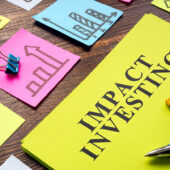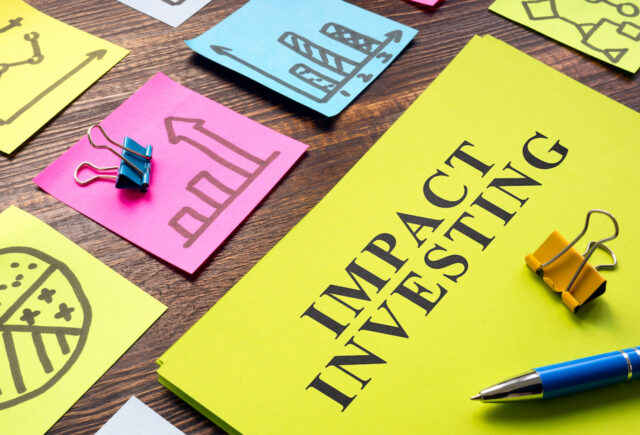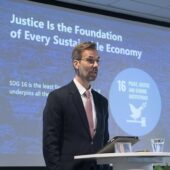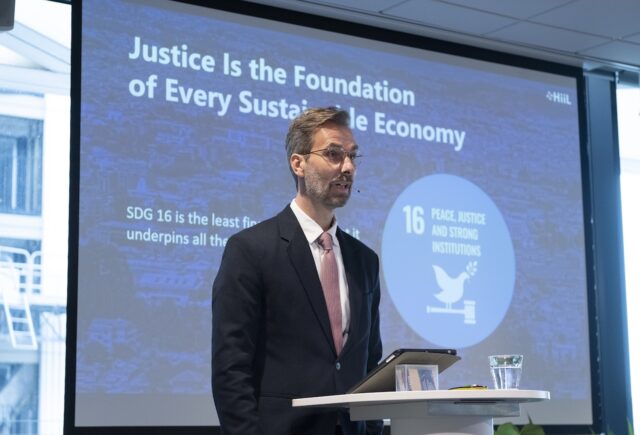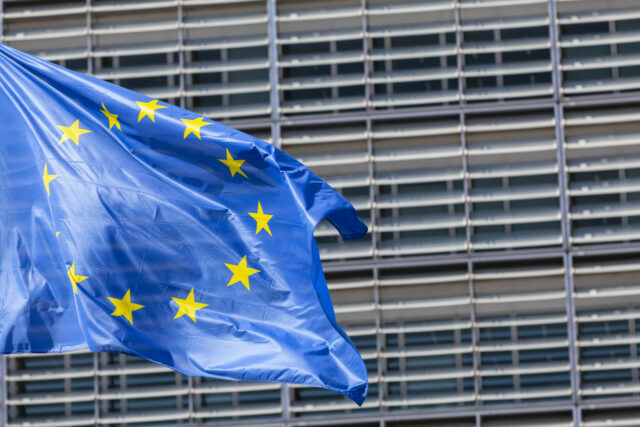Organisations who want to monitor their impact should first and foremost gather data from people on the ground, says 60 Decibels. The American company is developing a new impact index based on end-user data.

The index will list and compare the impact of up to a hundred microfinance organisations. Swiss impact investor ResponsAbility and MFI Brac, the microfinance organisation that started in Bangladesh, are two organisations who already signed up for 60 Decibels’ financial inclusion index.
Last month, the project received a grant from The Tipping Point Fund on Impact Investing (the amount is not disclosed). Sixteen organisations who are working on improving impact investing metrics and comparability received a total $3.3mn, which makes it the fund’s largest grant. Other grantees include household names such as the Global Impact Investing Network (GIIN), B Lab and Toniic.
Setting global industry standards is often a top-down process. But 60 Decibels is different, according to The Tipping Point Fund. Its executive director Fran Seegull described their work as “collecting data from people in the trenches”.
A regular conversation
“You often hear that it is too hard to collect information from end customers. But no, we want to prove that it is not too hard to go all the way”, Lindsay Smalling, Head of US Sales at 60 Decibels, told Impact Investor.
So how does that work? 60 decibels is the volume of our voices in regular conversation. A regular conversation is also what makes this American impact measurement company special. It collects most of its data via phone calls instead of the customary fill-out forms.
“If you get an online form with questions on how your off-grid solar panel works, you are likely to check: ‘It works ok’, for example”, said Smalling.
“But in a human to human interaction you get a much richer and better understanding of the impact those products have on people’s lives. Another advantage is that you eliminate challenges of literacy and internet connectivity when you gather data from end customers by phone.”
Around 750 local researchers in 50 countries conduct the interviews in the end user’s native language. The researchers, trained in-house by 60 Decibels, then transcribe the conversations and quantify the information into impact data.
Western assumptions
People in the Western world make all sorts of assumptions about what impact their services have on people in developing countries, according to Smalling.
As an example, she said that “many Westerners” believe that investing in solar energy improves end customers’ health, finances and saves time for women who don’t need to go collect wood.
“But when asking end- customers about the real impact, we got totally different answers. We learned that the greatest benefit of investing in solar energy is that it makes people feel safer in their homes. What could be a better impact than that?”
Lived experience
Smalling is critical of the way many of 60 Decibels’ peers measure and present impact.
“I just received a new glossy report from a well-known impact investment fund. It is all about output! It says nothing about what impact those companies had on their end-customers once the product was out in the world. Just: ‘this is how hard we tried’.”
60 Decibels’ bigger goal is to change the conversation in the impact measurement sector. Impact reports shouldn’t list what a company did to improve itself. Instead, companies and investors should be curious about people’s lived experience and how the impact could be improved.
That’s why 60 Decibels’ researchers try to find out how a family is using their off-grid solar lantern, whether it has any benefits to their lives and how it impacts their costs, to name one example. “That’s the only true way of knowing what your impact really is”, said Smalling.
Since its inception in 2019, 60 Decibels has measured the impact on behalf of clients such as Unilever, CDC and the UK Foreign Commonwealth and Development Office. In total they have talked to around 150,000 end-users in 34 languages.
Launch in spring
Lindsay Smalling hopes that the new index will become a global benchmark for the financial inclusion industry. With the grant from the Tipping Point Fund, her organisation hopes to convince a total of 100 companies to be part of the index.
The organisation already has a similar index in place, measuring the impact of off-grid energy companies [PDF]. Phone interviews showed that BioLite, a US-based off-grid company that sells solar lighting products to emerging markets consumers, had the biggest positive impact on end-users’ lives out of the surveyed companies.
In the run-up to the new financial inclusion index, 60 Decibels is finalising their new survey tool that will be used to gather and analyse data. Researchers will collect impact stories from 25,000 end-customers in developing countries in the coming months. Decibels hopes to launch the new index for the public in the second quarter of 2022.
